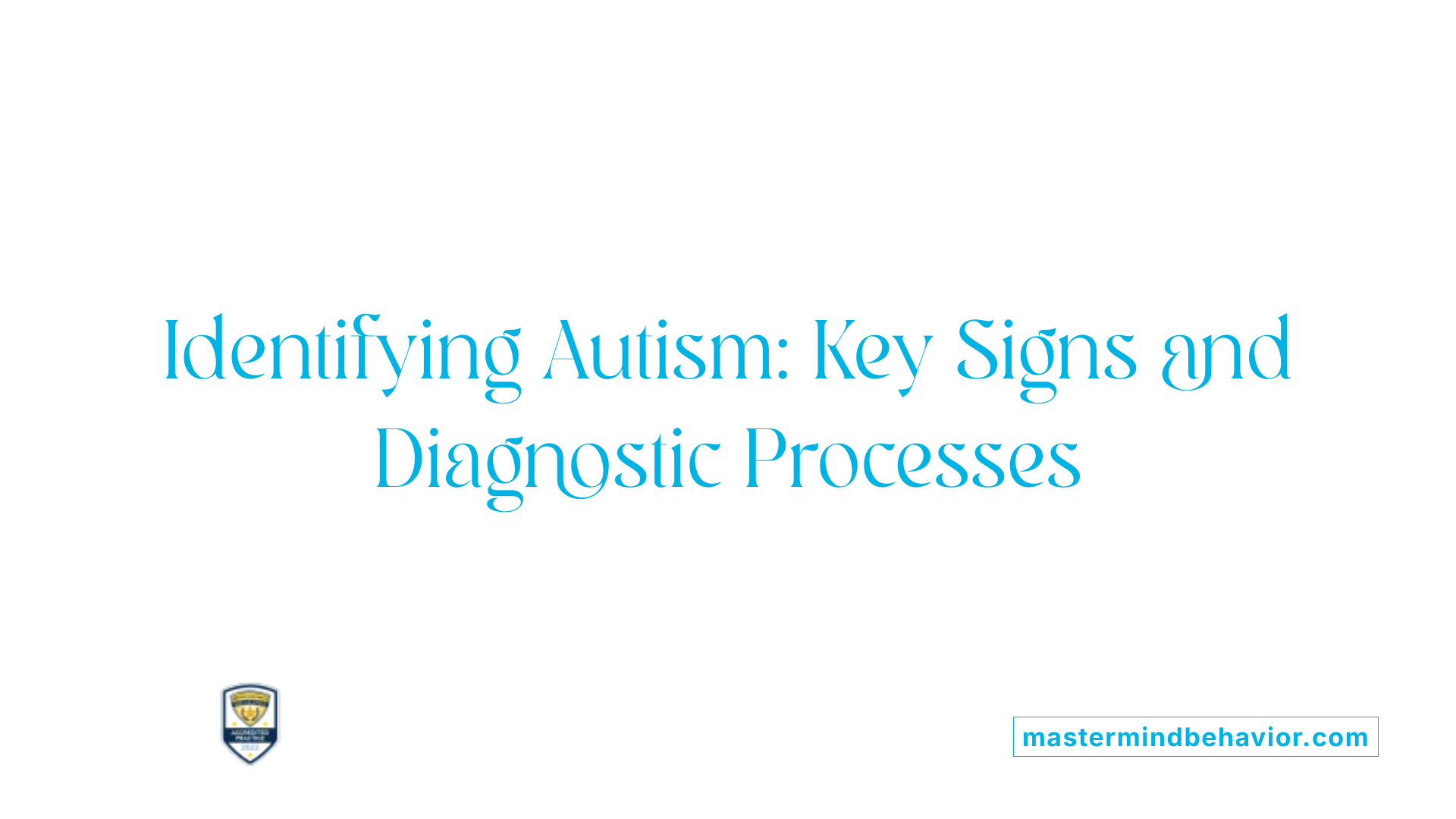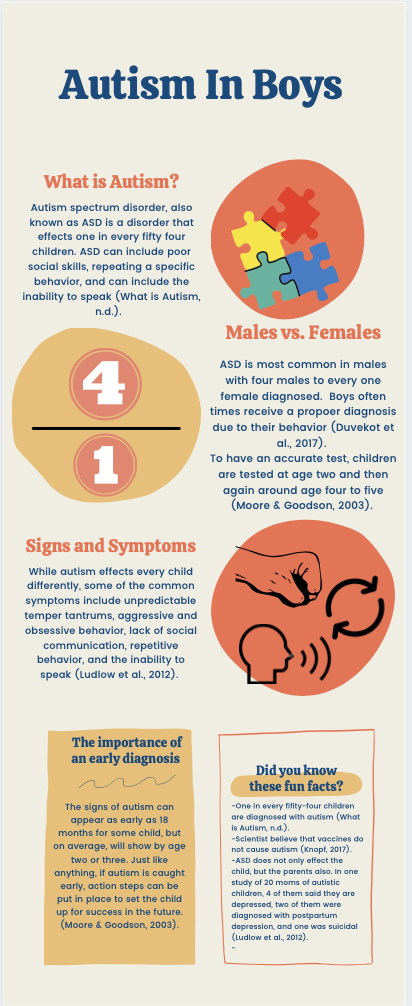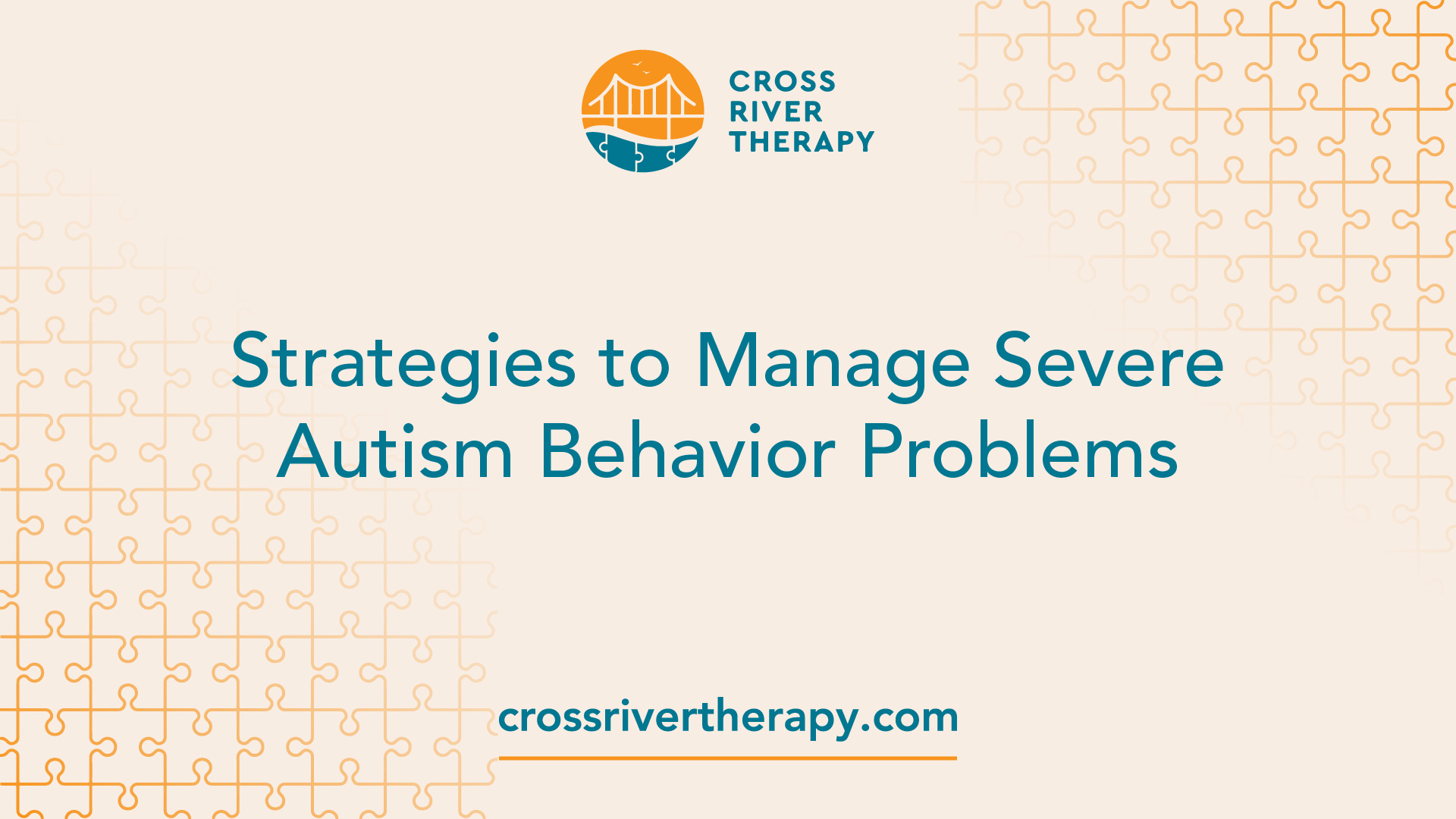Essential checklist for working with Autism Spectrum Therapies providers
Essential checklist for working with Autism Spectrum Therapies providers
Blog Article
Trick Symptoms And Signs to Identify in People With Behavioral Autism
When you run into someone with behavioral autism, identifying crucial symptoms and signs is crucial. You may observe difficulties in social interactions and interaction, in addition to a strong requirement for regimens. Additionally, sensory level of sensitivities can bring about frustrating experiences. Recognizing these characteristics can boost your assistance and interventions, however there's more to reveal concerning how these actions materialize in daily situations. Let's explore what these indicators really look like.
Obstacles in Social Interactions
When you engage with somebody on the autism range, you may observe they have a hard time with social cues and interaction. These difficulties can make social communications really feel frustrating for them.
Furthermore, you may discover that they prefer regimens and familiar settings, which can restrict their determination to engage in brand-new social situations. When they do engage, they may speak about their interests in fantastic information without seeing if you're interested. This can lead to discriminatory conversations that leave you feeling disconnected. Understanding these difficulties can help you come close to interactions with compassion and persistence, fostering a much more comfortable setting for both of you.
Trouble With Verbal and Non-Verbal Communication

Recognizing these indicators is important, as it helps you better support and involve with people on the autism spectrum. By understanding their communication difficulties, you can promote a lot more significant links and offer an extra encouraging atmosphere.
Recurring Behaviors and Routines
Interaction obstacles typically come with other indications of autism, such as repeated actions and a solid choice for routines. You might notice that people with autism often engage in certain, repetitive activities, like hand-flapping, rocking, or repeating phrases. These behaviors can supply comfort and a feeling of control in a frequently frustrating globe.
When they follow a structured schedule,Regimens are similarly important; numerous people thrive. You might discover that modifications to these regimens can bring about considerable distress. If they have an everyday ritual of eating breakfast at a details time or complying with a particular path to institution, any type of interruption can cause stress and anxiety.
Acknowledging these patterns aids you understand their behavior and give support. By suiting their requirement for regular and permitting repeated activities, you can develop a much more comfortable environment that relieves their obstacles.
Sensory Level Of Sensitivities

Typical Sensory Triggers
Sensory level of sensitivities can considerably influence every day life for individuals with autism, as particular stimulations commonly set off overwhelming reactions. Usual sensory triggers include loud noises, intense lights, and solid scents. You may observe that unexpected sounds, like alarms or alarms, trigger anxiousness or distress. Fluorescent illumination in stores can really feel rough and awkward. Textures can additionally play a significant function; harsh fabrics or particular food structures might be intolerable for you. In addition, crowded areas can overwhelm your detects, making it difficult to loosen up or concentrate. Understanding these triggers can assist you handle your environment much better. By being aware of what impacts you, you can take actions to decrease discomfort and improve your daily experiences.
Behavioral Reactions Discussed
Understanding your behavioral reactions to sensory sensitivities is necessary, as they frequently disclose how you communicate with the globe. You may observe that certain noises, lights, or structures bewilder you, leading to anxiousness or discomfort. When confronted with these stimuli, you may withdraw, cover your ears, or perhaps react boldy. These actions aren't simply traits; they're your way of dealing with overstimulation. You may additionally find yourself seeking specific sensory experiences, like deep pressure or silent settings, to aid ground on your own. Acknowledging these patterns aids you understand your demands better and can guide how you connect them to others. By acknowledging your sensory level of sensitivities, you can work in the direction of creating an atmosphere that really feels extra workable and comfy for you.
Coping Techniques Review
Acknowledging your sensory level of sensitivities is just the very first step; now it's time to discover coping approaches that can assist you handle those experiences successfully. Beginning by creating a sensory toolkit tailored to your needs. This could include noise-canceling headphones, fidget playthings, or calming aromas. Establishing an organized regimen can likewise give predictability, lowering stress and anxiety around sensory overload. Take breaks in a silent space to regroup when you really feel overloaded. Exercising mindfulness techniques such as deep breathing can help ground you in the minute. In addition, interact your requirements with those around you; having supportive family and friends can make a significant difference. Bear in mind, discovering what works ideal for you may take time, so be open and patient to trying brand-new methods.
Restricted Interests and Emphasis
While lots of individuals establish a wide variety of passions, those with autism frequently demonstrate limited rate of interests and an intense focus on certain topics. You could see that a person with autism can spend hours diving right into their preferred subject, whether it's a specific sort of train, a details flick, or a clinical concept. This intense emphasis isn't simply a hobby; it can become a central component of their identification and social interactions.
You might find that discussions rotate around these rate of interests, and they might battle to involve in more comprehensive subjects. By recognizing and acknowledging these restricted passions, you can foster a helpful setting where they really feel valued click over here now and understood, permitting for more significant links and communications.
Psychological Law Difficulties
People with autism frequently deal with challenges in emotional policy, which can be affected by their extreme concentrate on specific interests. You might notice that when a person is deeply participated in a preferred task, they can experience solid feelings, whether exhilaration or aggravation. When things do not go as intended., this intensity sometimes makes it tough for them to move gears or manage their feelings - Autism Therapist.

Irregularity in Developmental Landmarks
When it comes to developing landmarks, you'll discover that individuals with autism often reveal a broad array of irregularity. You may see a kid stand out in language skills but battle with social interactions.
It's crucial to identify that each individual's journey is special. Observing these patterns can aid you comprehend their strengths and requires better.
Often Asked Concerns
Just How Is Autism Identified in Children and Grownups?
To diagnose autism in kids and grownups, specialists review habits, interaction abilities, and social communications. If a specific fulfills the standards for autism spectrum disorder., they commonly utilize standardized tests, interviews, and observations to determine.
Exist Various Types of Autism Spectrum Disorders?
Yes, there are various types of autism range disorders, including Asperger's disorder and prevalent developing disorder-not otherwise specified. Each kind differs in extent and characteristics, so comprehending these distinctions can help you better assistance people with autism.
What Treatments Are Reliable for People With Autism?
When taking into consideration efficient therapies for people with autism, you'll find alternatives like Applied Actions Analysis, speech treatment, and occupational therapy. Each method can help boost interaction, social skills, and everyday functioning tailored to specific requirements.
Can People With Autism Lead Independent Lives?
Yes, people with autism can lead independent lives. With the ideal assistance, abilities training, and sources, you can assist them create self-sufficiency, take care of day-to-day tasks, and thrive in numerous settings, cultivating their independence.
Just How Can Households Assistance Liked Ones With Autism?
You can sustain your loved ones with autism by developing a structured environment, motivating their rate of interests, practicing persistence, promoting interaction, and advertising social skills. Commemorate their achievements, regardless of exactly how little, and build an encouraging area.
Although lots of individuals on the autism range can recognize and use language, they often encounter considerable challenges with both verbal and non-verbal communication. Identifying these indications is necessary, as it helps you far better assistance and engage with people check that on the autism spectrum. You may discover that people with autism typically engage in particular, repeated activities, like hand-flapping, shaking, or duplicating phrases.Sensory sensitivities can considerably influence day-to-day life for people with autism, as specific stimulations usually activate frustrating responses.When it comes to developmental milestones, you'll observe that people with sites autism usually show a vast range of variability.
Report this page